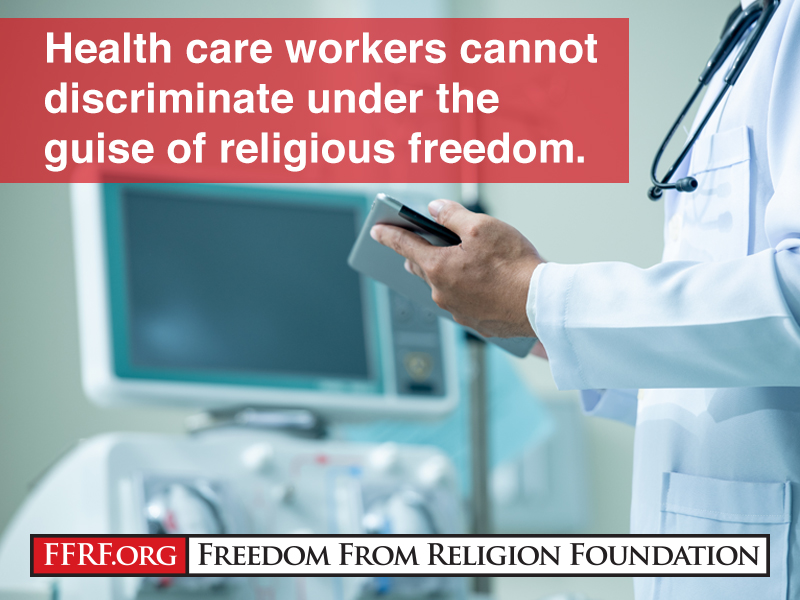
The Freedom From Religion Foundation applauds a federal judge’s nationally significant decision yesterday that has struck down President Trump’s “conscience clause” rule permitting health care workers to discriminate.
The 147-page decision by U.S. District Judge Paul A. Engelmayer of the Southern District of New York blocks a rule that would have allowed health care workers to refuse to treat patients under the guise of religious freedom. This is the first decision in several legal challenges across the country.
In blatant pandering to his base, Trump announced the administrative rule at a Rose Garden event on the National Day of Prayer in May. Trump claimed the rule would protect the “civil rights” of health care workers who objected to medical procedures on religious or moral grounds. Local governments, hospitals and insurance companies could have faced loss of federal funds for “violating” employees’ rights under the rule.
Engelmayer decided a consolidated challenge to the rule brought by 23 government entities (including 19 states), two Planned Parenthood affiliates, and several public health and family planning associations.
FFRF had objected to the rule, noting it would endanger millions of Americans.
“Ironically, the so-called conscience clause rule would have abrogated the rights of conscience of patients,” says FFRF Co-President Annie Laurie Gaylor.
Health care workers already have sufficient legal protections against being forced to perform medical procedures that violate their conscience, so long as patients are given notice and have adequate access to the care they seek. The rule went further and allowed discrimination in the name of religion, needlessly jeopardizing the medical needs of vulnerable patients, particularly women and LGBTQ individuals. Any health care worker could refuse to perform any service, including distributing medication, for which they could claim a religious objection.
The court ruled that the Department of Health and Human Services violated the Administrative Procedure Act during the rulemaking process, that the rule “conflicts with Title VII of the Civil Rights Act of 1964,” a federal statute on emergency medical treatment, the constitutional separation of powers, and Article I of the Constitution. Put another way, the court held that HHS exceeded its legal authority to enact this discriminatory rule contrary to established law, that it lacked a legitimate reason for the rule (the action was “arbitrary and capricious”), and failed to consider public comment on the rule. (FFRF encouraged members to comment against the rule.)
The Freedom From Religion Foundation is the country’s largest freethought organization, with more than 30,000 nonreligious members and several chapters all across the country.
